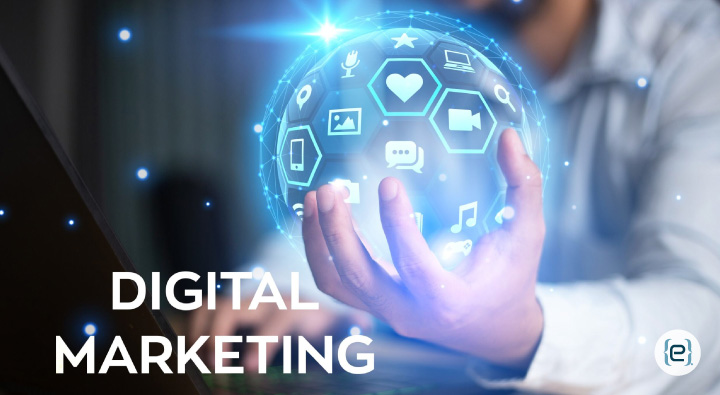AI Personalization Marketing: Crafting Tailored Customer Experiences That Convert


AI personalization is changing the game for marketers. It’s like having a super-smart assistant who knows exactly what each customer wants. This tech helps create unique experiences for people, making them feel special and understood. AI analyzes tons of data to figure out what customers like, then tailors marketing just for them. It’s not just about showing ads anymore—it’s about giving people the right info at the right time. From custom emails to personalized product recommendations, AI makes it all possible.
Companies are using AI to build detailed profiles of their ideal customers. This helps them speak directly to the people most likely to buy their products. It’s a win-win: customers get stuff they actually want, and businesses boost their sales. Who knew robots could be so good at making things personal?
Essentials of AI in Marketing
AI personalization is transforming how businesses connect with customers. It uses data and machine learning to create tailored experiences at scale. Let’s explore the key concepts and advantages.
Defining AI Personalization
AI personalization in marketing uses algorithms to analyze customer data. It looks at things like browsing history, purchases, and demographics. This helps create custom content and offers for each person. The tech can work in real-time, adjusting messages as people interact with a website or app. AI can also predict what a customer might want next, letting marketers be proactive.
Some common uses include:
- Product recommendations: AI suggests items based on past purchases and browsing history.
- Targeted email campaigns: Personalized emails increase engagement and conversion rates.
- Dynamic pricing: Prices adjust in real-time based on demand and customer behavior.
- Personalized ads: Ads are tailored to individual interests and behaviors.
AI takes the grunt work out of personalization, handling large amounts of data much faster than humans.
Benefits of AI-Driven Personalization
AI personalization offers many perks for marketers and customers alike. Here are some key advantages:
- Better customer experiences: People get content that matters to them.
- Higher conversion rates: Relevant offers lead to more sales.
- Improved customer loyalty: Personalized service makes people feel valued.
- Time savings: AI automates many tasks, freeing up marketers.
- More efficient ad spend: Targeted ads waste less money.
AI also helps businesses learn more about their customers over time, leading to even better personalization down the road. One fun benefit? AI might save us from those awkward “Hey [First Name]” email fails. Now that’s something we can all get behind!
Implementing AI Personalization
AI personalization in marketing uses data and algorithms to tailor content for each customer. It aims to boost engagement and sales by showing people what they’re most likely to want.
Data Collection and Analysis
Companies gather info from many places to understand their customers better. They look at website clicks, purchase history, and social media activity. AI tools crunch this data to spot patterns. Machine learning helps find hidden insights in large datasets, predicting what products someone might buy next or when a customer is likely to leave.
Privacy is important. Businesses need to be clear about what data they collect and how they use it. They should follow laws like GDPR to protect people’s information.
Segmentation and Targeting
AI helps split customers into groups with similar traits, known as segmentation. It goes beyond basic things like age or location. AI can find complex patterns in behavior. For example, it might group people who buy eco-friendly products and like outdoor activities or those who shop late at night and prefer luxury brands.
Targeting uses these segments to show the right message to the right person. AI can pick the best time and place to reach each group, making ads more relevant and less annoying.
Content Customization Techniques
AI can create unique content for each person, going far beyond just adding someone’s name to an email. It can:
- Change website layouts based on what a visitor likes
- Suggest products that match someone’s style
- Write email subject lines that catch attention
AI chatbots can have real conversations with customers, learning from each chat to get better over time. Some brands use AI to make personalized videos or images, which can be great for social media campaigns. The key is to make content feel natural, not creepy. People should feel helped, not stalked.
Challenges and Considerations
AI personalization in marketing comes with important issues to address. Companies must navigate privacy concerns and find the right mix of automation and human involvement.
Privacy and Security Issues
Collecting and using customer data for personalization raises privacy worries. People may feel uneasy about companies having so much of their personal info. There’s also the risk of data breaches exposing sensitive details. Marketers need strong data protection measures, including encryption, access controls, and regular security audits. Being transparent about data practices builds trust. Clear privacy policies and opt-out choices are a must.
Some countries have strict data laws like GDPR in Europe. Marketers must follow these rules or face big fines. It’s tricky to personalize while respecting privacy rights.
Balancing Automation and Human Touch
AI tools can create super-targeted ads and content, but relying too much on automation can backfire. Customers may find overly personalized messages creepy or annoying. The key is finding the sweet spot between AI and human input. Marketers should use AI for tasks like:
- Analyzing customer data
- Generating content ideas
- Optimizing ad placements
But humans still need to review and refine AI outputs. They add creativity and emotional intelligence that AI lacks. A human touch helps avoid tone-deaf messaging or culturally insensitive content. Training staff to work alongside AI is crucial. It’s about augmenting human skills, not replacing them entirely. The goal is personalization that feels helpful, not intrusive.
Future Trends in AI Personalization
AI personalization in marketing is evolving rapidly. New technologies and predictive capabilities are changing how brands connect with customers. These advances aim to create more relevant and timely experiences.
Emerging Technologies
Generative AI is transforming personalized content creation. It can produce custom text, images, and videos tailored to each user, allowing for scalable, on-demand personalization across channels. Voice and conversational AI are becoming more sophisticated, with virtual assistants offering personalized recommendations and support through natural dialogue. Augmented and virtual reality will enable immersive personalized experiences. Customers may virtually try on clothes or preview products in their homes.
Predictive Personalization
AI models are getting better at forecasting customer needs and behaviors. They analyze past actions, demographics, and real-time signals to predict future interests. This allows for proactive personalization. A sports app might suggest gear before a user’s usual workout time. An airline could offer a vacation package right when someone is most likely to book. Emotion AI may soon detect customer moods and tailor experiences accordingly. Website layouts or ad copy could adjust based on a user’s emotional state.
In conclusion, AI personalization is revolutionizing marketing by crafting tailored customer experiences that convert. Embracing these technologies can significantly boost your business’s engagement and sales. Contact eMazzanti today to learn how we can help you implement AI-driven personalization strategies to enhance your customer interactions and drive growth.
Recent Posts
Step Up Your Threat Response With Security Copilot
As we move deeper into 2025, you are probably focusing on ways to expand your…
Watch Out for the Cyber Security Menace
As we move deeper into 2025, you are probably focusing on ways to expand your…
The Rise of AI Agents: Simplifying Tasks and Connecting Technologies
Introducing eCare Bot: Your Intelligent IT Support Assistant In today's fast-paced world, the emergence of…
Server Simplified
At eMazzanti Technologies, we recognize that stable, effective, and expandable servers are essential to the seamless operation of enterprises. For this reason, we collaborate with Hewlett Packard Enterprise (HPE) to offer our clients the best server solutions possible, customized to meet their unique requirements. HPE servers provide the performance and flexibility required for small and big businesses to manage data, support apps, and manage workloads with ease. Customers may choose the best HPE servers for their organization with the assistance of our team of specialists. We take the time to comprehend the particular needs of every client, including those related to processing speed, storage capacity, and security features. Whether our clients require a general-purpose ProLiant server or a…
How to Make Your AI Copy Sound Authentic: Writing Like a Human, Not a Machine
AI writing tools have become popular for creating content quickly. But many readers can spot…
Data Analytics for Old-School Business Owners: Turning Dusty Ledgers into Gold Mines
Data analytics is changing the game for businesses of all types, including old-school industries that…


